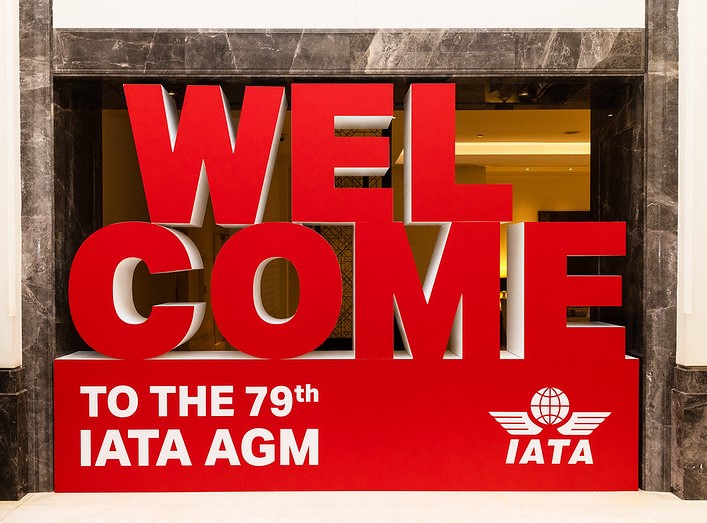
More than 1500 airline CEOs and aviation leaders, and many businesses and government agencies that work with them, gathered this week in Istanbul, Turkey.
They were here for the annual general meeting of IATA, the International Air Transport Association, and the World Air Transport Summit.
The Stuck at the Airport team joined a large contingent of media attendees.
We heard media briefings on everything from the economic outlook of the aviation industry to a rise in the number of unruly passenger incidents.
Presentations also covered progress being made (or not) on developing enough sustainable aviation fuel (SAF) to help the industry reach its goal of achieving net-zero carbon emissions by 2050.
General event sessions covered these topics and others, including panels on diversity and inclusion in the aviation world and post-pandemic challenges for air transport. And there was the always looked-forward-to CEO Insights panel hosted by CNN’s Richard Quest.
(This video is almost an hour, but it’s full of great information and Quest keeps it entertaining).
More event highlights
Readers can geek out on dozens of other press releases, speech transcripts, and videos from the event But here are some other highlights.
In his report on the current status of the air transport industry, Willie Walsh, IATA’s Director General, said airlines are “en route to a profitable, safe, efficient, and sustainable future,” with the pandemic behind them and borders open as normal.
The latest data show passenger traffic at over 90% of 2019 levels, he said, with the airline industry now making profits.
“Margins are, however, wafer thin. With $803 billion of revenues, airlines will share $9.8 billion in net profit this year. Put another way, airlines will make, on average, $2.25 per passenger. So, the value retained by airlines for the average plane trip won’t even buy a subway ticket in NYC,” said Walsh. “Clearly that level of profitability is not sustainable. But considering we lost $76 per passenger in 2020, the velocity of the recovery is strong.”
Here’s his full statement.
Can airlines reach net zero carbon emissions by 2050?
As mentioned above, airlines are committed to achieving net zero carbon emissions by 2050. And a big piece of that puzzle depends on there being adequate sustainable aviation fuel (SAF) available to airlines.
Right now, the industry is woefully behind on that front. This panel explored some ways to finance the transition.
Which left us feeling a bit hopeful.
Thanks for visiting Stuck at the Airport. Subscribe to get daily travel tidbits. And follow me on Twitter at @hbaskas and Instagram.